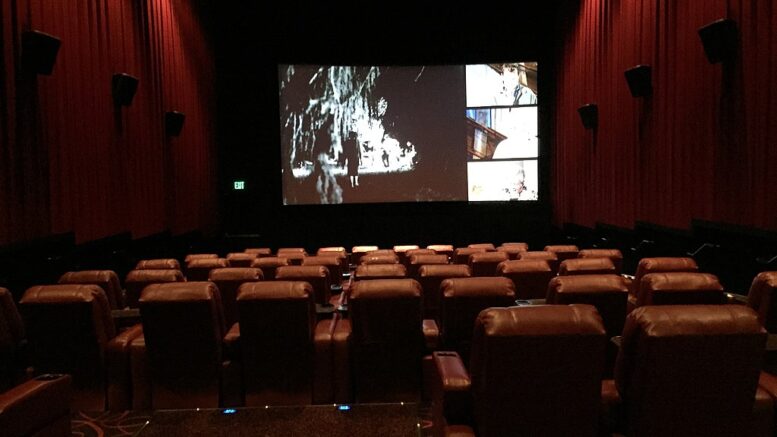By Kendall Younkman
Have you ever wondered how Deaf people watch movies if they cannot hear what actors are saying in the movie? That is exactly why closed captioning exists!
It is completely impossible for Deaf people to understand the movie without closed captioning. Deaf people rely on visuals and the ability to read rather than sound. Some Deaf people can hear, based on how loud it is.
Closed captioning devices in the movie theater impact the Deaf community because they often have issues with the device.
For example, Marlee Matlin, Jeremy O. Harris, and Eliza Hittman walked out of a film screening. “Matlin’s closed captioning device malfunctioned, and no other captioning alternatives were available”, according to Why Advocates Are Calling Out Closed Captions at Movie Theaters and Festivals.
The statistic of Deaf people in the United States is 1 million and Deaf people are exposed in this generation more than before. People are educated about how important it is to have closed captioning so Deaf people have accessibility, according to Gallaudet University.
The Disability Rights Advocates received complaints from Deaf people about closed captioning device issues such as them not functioning properly.
For instance, there is a deaf community in Rochester, New York. A lot of Deaf people like to go to movie theaters to watch movies, but the problem is the movie theater is only willing to have a specific movies upon request from Deaf people.
The movie theaters have to approve the movie viewing with closed captioning before setting up a specific time for it to be played during the week.
The issue with this is it does not give Deaf people an option to pick a time they would rather go to. The movie theater will decide the time for them.
This makes it not as convenient for Deaf people to attend a movie as it is for hearing people to go see a movie on a Friday night.
Often, hearing people will find devices distracting and tell Deaf people to get them out of their sight.
Deaf people experience this issue often when a hearing person sits right next to them at the movies.
I personally have had to tell them that I’m deaf and that it is a closed captioning device that helps me to understand what the movie is about.
People immediately take back what they say and apologize for their actions. While other people will tell Deaf people to move to another seat so the device won’t bother them.
“It is my right to pick a seat where I want to sit. If it bothers them so much, they can pick another seat,” people in the deaf community have said.
Closed captioning is required for all video communications.
“Movie theaters are required to provide and maintain closed captioning and audio description equipment for digital films that are produced accessibility features,” according to the Americans with Disabilities Act.
Briana Richards experienced a situation where a device malfunctioned and the movie theater employees always gave her a free movie ticket concluding the playing of the movie.
“I don’t want to have a free movie ticket if a movie theater employee is not willing to improve their service for deaf people. It is not worth using a free movie ticket if the device malfunctions again. I won’t be surprised,” Richards said.
A lot of Deaf people don’t go to movie theaters often because of closed captioning issues that leave them unsatisfied with the services the theaters provide.
Deaf people often rely on streaming for closed captioning, such as Netflix, Amazon Prime, or Hulu. They will even wait months after the movie is released in theaters for it to drop on streaming platforms with reliable closed captioning.
The Deaf community feels frustrated for not having the accessibility they need at movie theaters, even if movie theaters have the equipment they need; it is still not good enough for the Deaf community.
The movie theaters need to do better to provide the best accommodations the Deaf community needs in order to be fair compared to everyone else. I emailed the headquarters of the movie theater and received no response or answers.
As more Deaf people are being exposed in this generation their wish is for movie theaters to improve their service for the Deaf community rather than just giving them a free ticket in the future. A free ticket is not good enough for them.



Be the first to comment on "Lack of closed captioning in movie theaters for the Deaf community"